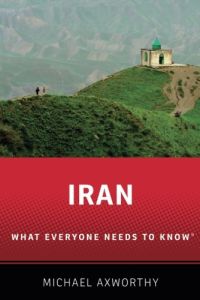Join getAbstract to access the summary!

Join getAbstract to access the summary!
Michael Axworthy
Iran
What Everyone Needs to Know
Oxford UP, 2017
What's inside?
Iran has a woeful record on human rights, but it’s no evil empire.
Recommendation
Mention Iran to most westerners, and they likely think of Tehran’s nuclear ambitions, the American hostage crisis or former US president George W. Bush’s “axis of evil” speech. According to Iran expert Michael Axworthy, however, there’s much more to Iran’s long and nuanced story. Axworthy delves into Iran’s flirtations with democracy, its rich tradition of poetry, its conflicts with the rest of the Muslim world and its exploitation by Western powers in the 20th century. The prose plods a bit when Axworthy describes Iran’s long-ago history, at least for readers unschooled in the players and events of ancient times. But the pace picks up as he details current events – or, at least, when the story moves into territory familiar to most English-language readers. Axworthy acknowledges that Iran’s human rights record is woeful, but he makes the surprising argument that the nation isn’t as misogynistic as many assume. Ultimately, the author’s exploration of Iran’s past and present does an admirable job of setting aside inflamed rhetoric and offering a clear-eyed view of the country as a place with both great flaws and abundant promise.
Summary
About the Author
Michael Axworthy is director of the Centre for Persian and Iranian Studies at the University of Exeter. From 1998 to 2000, he was head of the Iran Section in the British Foreign Office.

















Comment on this summary